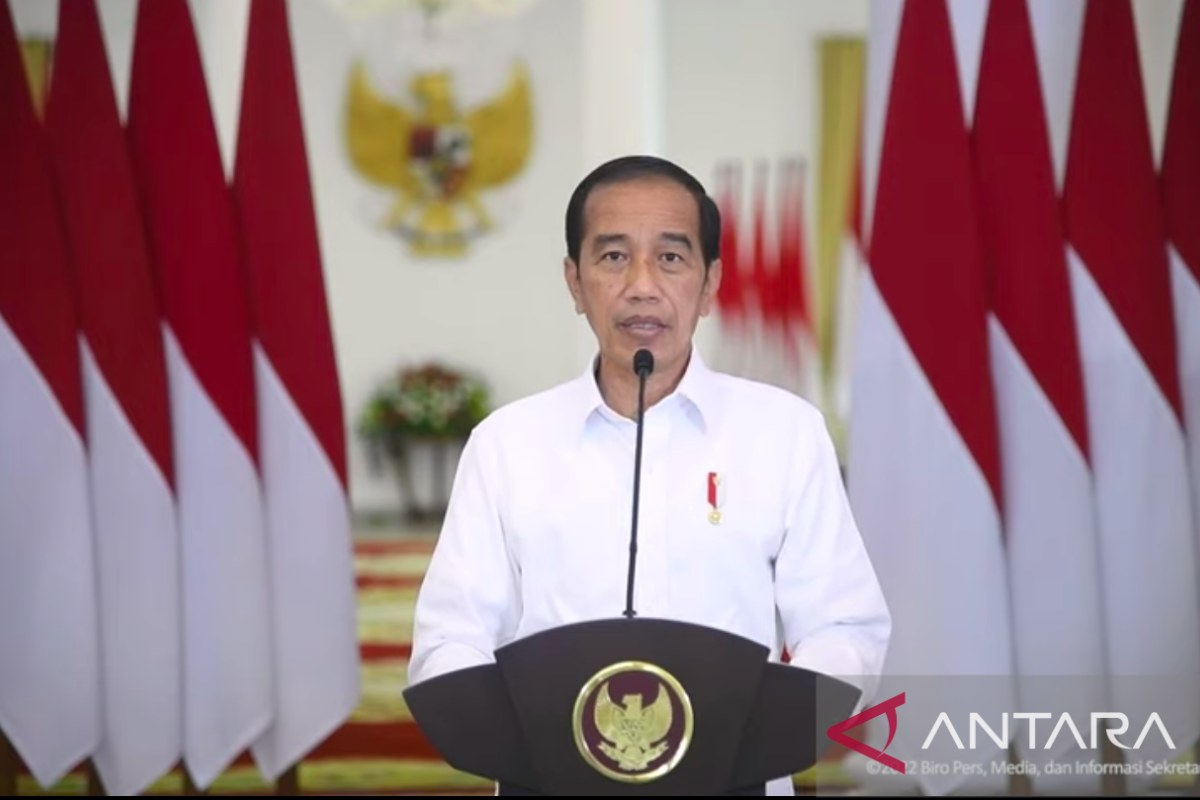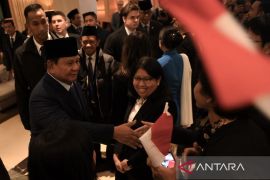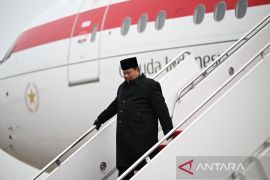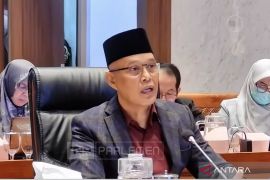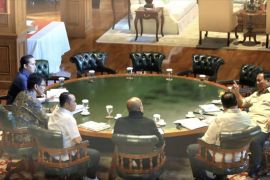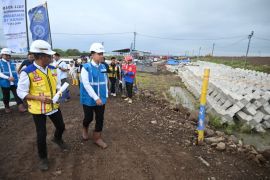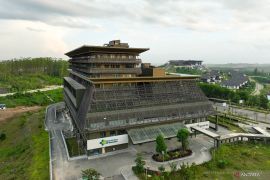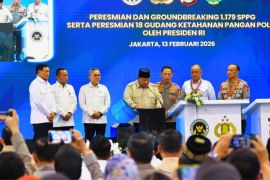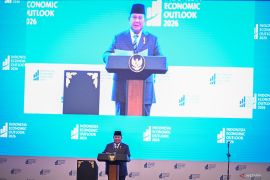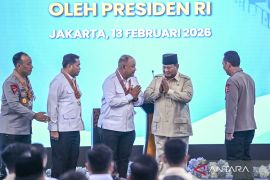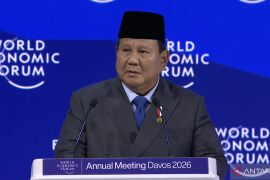This (war) will deepen the world economic crisis and increase world political tensionsJakarta (ANTARA) - The war in February 2022 had deepened the global economic crisis, whereas the world had been acutely impacted by the COVID-19 pandemic, President Joko Widodo (Jokowi) stated.
"When the world started to recover the economy, last month, in February 2022, there was a war that made all countries dizzy," President Jokowi noted in a virtual speech at the CNBC Indonesia Economic Outlook 2022 in Jakarta, Tuesday.
In February 2022, Russia declared to start a special military operation into Ukraine that has given rise to global geopolitical tensions to date.
President Jokowi remarked that in early 2022, the world economy had not fully recovered from the impact of the COVID-19 pandemic.
The propagation effect of restrictions on the mobility of people and goods due to COVID-19 has led to a scarcity of energy sources, food, and containers that can potentially raise inflation.
"This (war) will deepen the world economic crisis and increase world political tensions," he noted.
Political tensions have led to an increase in the prices of oil, gas, and raw materials for fertilizers and wheat. Hence, it is feared that inflation will continue to rise.
“These problems are a challenge for many countries, including Indonesia. We must address these challenges very carefully,” he stressed.
The head of state emphasized the importance of collaboration between the government and business actors to implement appropriate policies to accelerate economic recovery. One form of collaboration is the creation of several investments that become a source of employment and the mobilization of sources of inclusive and equitable economic growth.
“We need fast and appropriate policies and effective implementation. What is clear is that society must not become a victim of this global uncertainty," he stated.
Institute for Development of Economics and Finance (Indef) economist Eisha M. Rachbini had earlier forecast that the state budget deficit would potentially widen in 2022 due to the Russia-Ukraine conflict.
"Looking ahead, if the oil price persistently hovers at a high level of above US$100 per barrel and essential commodity prices increase, then the government will likely conduct price intervention and provide subsidies and social assistance, which will eventually put pressure on the state budget deficit," he remarked.
Jokowi projected that each US$1 per barrel rise in the Indonesian crude price (ICP) will raise the liquefied petroleum gas (LPG) subsidy by Rp1.47 trillion, kerosene subsidy by Rp49 billion, compensation to state oil and gas firm Pertamina by Rp2.65 trillion, and electricity subsidy by Rp295 billion.
In the meantime, state revenues from tax receipts and non-tax state revenues will increase by Rp0.8 trillion and Rp2.2 trillion, respectively, so the budget deficit could potentially widen, Rachbini remarked.
The government is expecting the 2022 state budget deficit to reach Rp868 trillion, or 4.8 percent of the national gross domestic product (GDP), he noted.
Related news: New capital to expedite economic development: President
Related news: Indonesia intensively works with World Bank to strengthen economy
Related news: Gov't preparing for post-pandemic economic order: minister
Translator: Indra AP, Azis Kurmala
Editor: Sri Haryati
Copyright © ANTARA 2022
